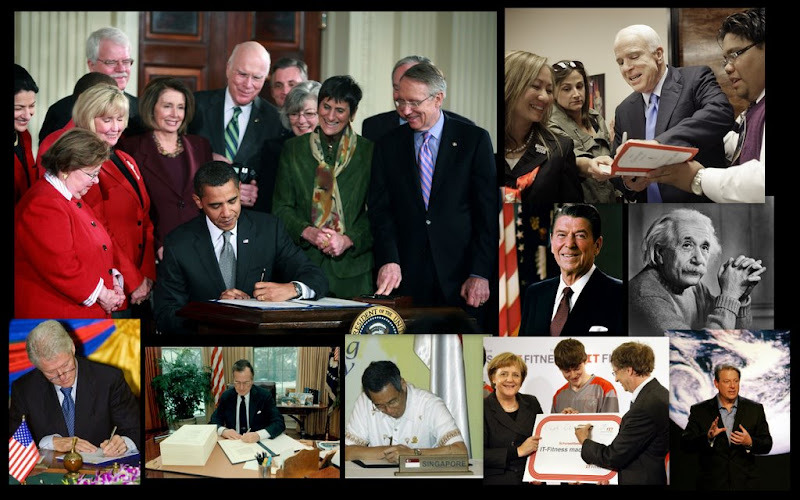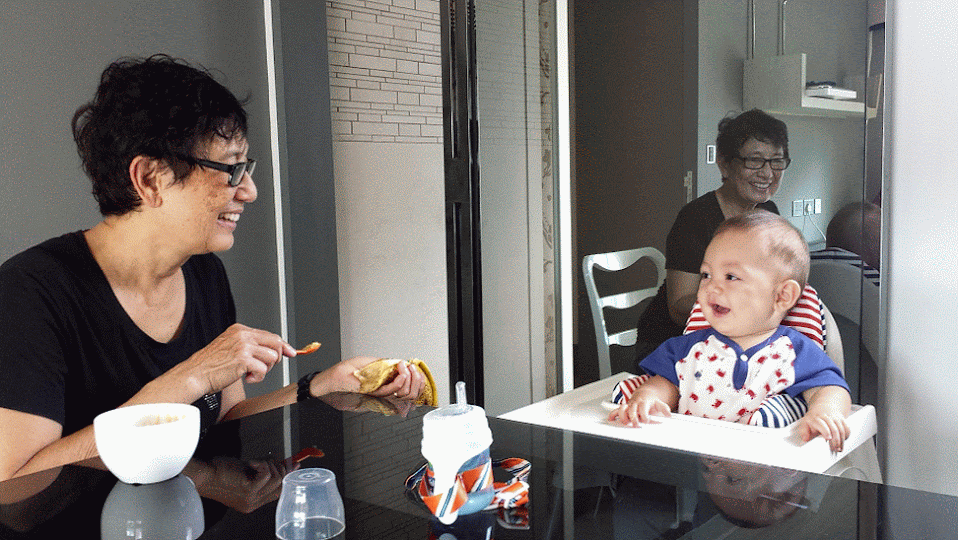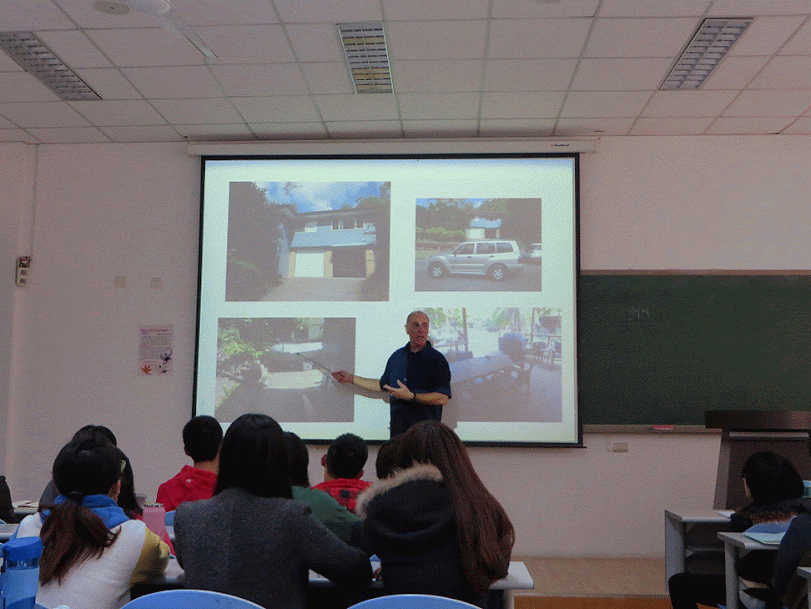As you know, I try to do a post each week, usually on the weekends. I started working on exam papers and just ran out of time last weekend.
I have started to compile the Western Culture exam papers for the final exams on 4 January 2015. I have to prepare a Paper A and a Paper B (Paper B is held in reserve in case Paper A 'leaks' in which case they can quickly substitute the reserve paper).
We normally need to get the exam papers in a month before the exam, so I am early, but they always take longer than expected to compile. At least I I broken its back, and will finish the job next weekend.
Today's post is about left-handedness in China ... read on ...
Left-handedness
During the recent G20 meeting in Brisbane some journalists noted
that several of country leaders were left-handed, especially President Obama
and Prime Ministers Cameron and Abbott.
Our son is left-handed and this subject has been of interest
to me.
From my research on google it appears that 9% - 10% of
Americans / Westerners are left-handed.
Some articles suggested that the brains of left-handed
people process information in a slightly different way: “wider scope of
thinking”; “more visual”; “more complex reasoning”. The articles said that a disproportionate
number of left-handed people are high-achievers, Nobel Prize winners, and creative
(such as writers and artists).
Left-handed people are also above-average communicators and
negotiators, if their success in American politics is anything to go by.
A remarkable 7 of the last 14 American Presidents have been
left-handed or ambidextrous.
Furthermore, in the 1992 and 1996 Presidential Elections, all the
serious candidates were left-handed: Bush, Clinton, Perot, and Dole (Note:
Dole’s right hand was injured when young and he had to learn to use his left
hand – so perhaps he wasn’t a real ‘southpaw’).
In the 2008 US Presidential Election, both major candidates,
Obama and McCain, were left-handed.
I checked Britain, Canada and Australia and found that the
preponderance of left-handed political leaders in America was not
replicated in those countries. In Britain there have only been three
left-handed Prime Minsters since 1940 (Winston Churchill, James Callaghan and
now David Cameron).
Regarding Canada, I
could not find evidence of any left-handed Prime Ministers for at least the
last 30 years.
Australia’s current Prime Minister, Tony Abbott, is
left-handed. I contacted the Australian
Prime Ministers Centre (part of the Museum of Australian Democracy located in
Old Parliament House, Canberra) for information on past Prime Ministers.
The APMC had to go back more than 70 years to find an
Australian Prime Minister who was left handed. Arthur (Artie) Fadden was PM for just 40 days,
from 29 August to 7 October 1941. He was
an accomplished boxer and records show that he was a ‘southpaw’ which means he
was probably left handed.
 |
| From top left: Barack Obama; John McCain; Ronald Reagan; Albert Einstein; Al Gore; Bill Gates; Lee Hsien Long of Singapore; George W H Bush; Bill Clinton. |
| Five of the last seven American Presidents were left-handed. From left: Gerald Ford; Jimmy Carter; Ronald Reagan; George W H Bush; Bill Clinton; George W Bush; Barack Obama. |
| Barack Obama and David Cameron, playing ping-pong left handed. |
| Tony Abbott, Australia's first left-handed Prime Minister is more than 70 years. |
| Scarlett Johansson signing autographs. Other famous lefties: Marilyn Monroe; Nicole Kidman; Angelina Jolie; Oprah. |
| Rafa Nadal in action. |
What’s the situation in China?
Actually, it is much more difficult to identify left-handed
people in China. Everyone here writes
using their right hand. In four years
here, I have only come across two students, both foreign (one Iranian, the
other Brazilian), who write Chinese characters using their left hands.
Occasionally I have seen students eat holding chopsticks in
their left hands. Many left-handed students told me that their parents
preferred them to hold chopsticks in their right hands and they had done so
since an early age. I was also told that
a book on etiquette published in the Zhou Dynasty stipulated that eating with
the right hand was ‘proper’, so this tradition is centuries old.
The best way is to watch them play a racquet sport such as
table tennis or badminton. Then a
person’s handedness quickly becomes obvious.
Each semester I ask my students how many are
left-handed. The samples are small,
usually between 200 and 300. From these little
surveys, it appears that 4% - 5% of students are left-handed (about half the incidence
in Western countries). This semester of the 267 students in my classes, only 6
said they were left-handed (2%), but the previous semester the proportion was
close to 5%.
Students assured me that there is no social stigma attached
to being left-handed in China or using the left hand (as is the case in some
Moslem countries).
In fact, students commented that in China left-handed
people are generally regarded as ‘clever’, based on the belief that they used
the right side of their brains (language & logic) more than right-handed people.
The most famous left-handed Chinese sports person is Lin Dan
who is probably the best badminton player ever. He is a national hero in China and of course
everyone knows that he plays left-handed.
The only Chinese leader I have been able to identify as
left-handed was ex-Premier Wen Jia Bao.
The China Daily had a picture of him playing badminton with Korean students, and he held the
racquet in his left hand.
| Badminton champion Lin Dan in action at the recent Asian Games in Incheon, 5 times World Champion; 5 times All England Champion; Olympic Gold in 2008 & 2012. |
| Wen Jiao Bao, ex-Premier of China (2002 - 2012), playing badminton. |
So, where does all that leave us?
Left-handed people certainly exist in China, but they are
not as obvious as in Western countries because they all use their right hands
when writing and most also use their right hands when eating.
Based on my limited research, the incidence of lefties in
the Chinese population appears to be about half the incidence in the West (4-5%
compared to 9–10%), although that needs to be verified by proper scientific
research.
Postscript
A
couple of other bits of trivia I picked up while researching ‘handedness’.
Famous lefties have included: Alexander the Great; Julius Caesar; Leonardo da Vinci; Michelangelo; Benjamin Franklin; Napoleon
Bonaparte; Gandhi; Albert Einstein; Buzz Aldrin; Paul McCartney; Osama bin Laden; Bart Simpson.
There is a Left-handed Club, and August 13 is promoted as
“International left-handed day”.
In 1946 the Government of China decreed that all cars drive
on the right side of the road. Prior to
that, cars in Southern China drove on the left side, influenced by the British
system in Hong Kong. In fact, even now
traffic in Hong Kong and Macau drives on the left, while the rest of China
drives on the right.
Traditionally, writing in China was vertical, from right to
left. Following the fall of the Qing
Dynasty in 1911, the new Republic of China instituted a ‘cultural modernisation
program’ part of which included adopting the Western style of writing -
horizontally, from left to right.
Well, folks, that's all for this post.
Keep well, and keep smiling.
Alex & Vera Olah
English teachers at the China University of Petroleum, Qingdao
www.upc.edu.cn
Monday, 24 November 2014





